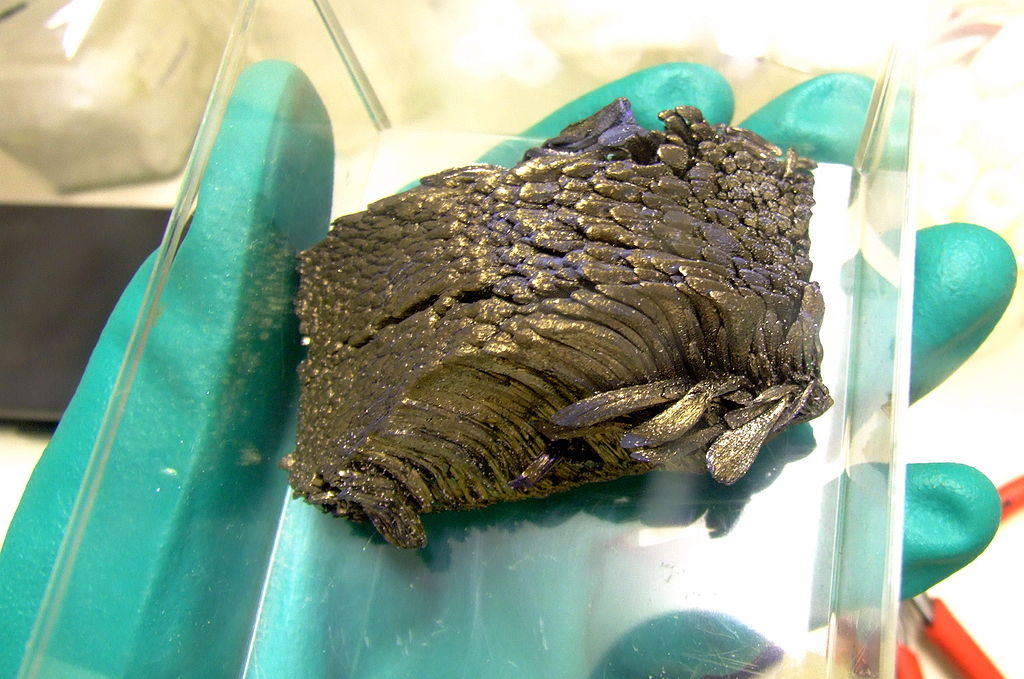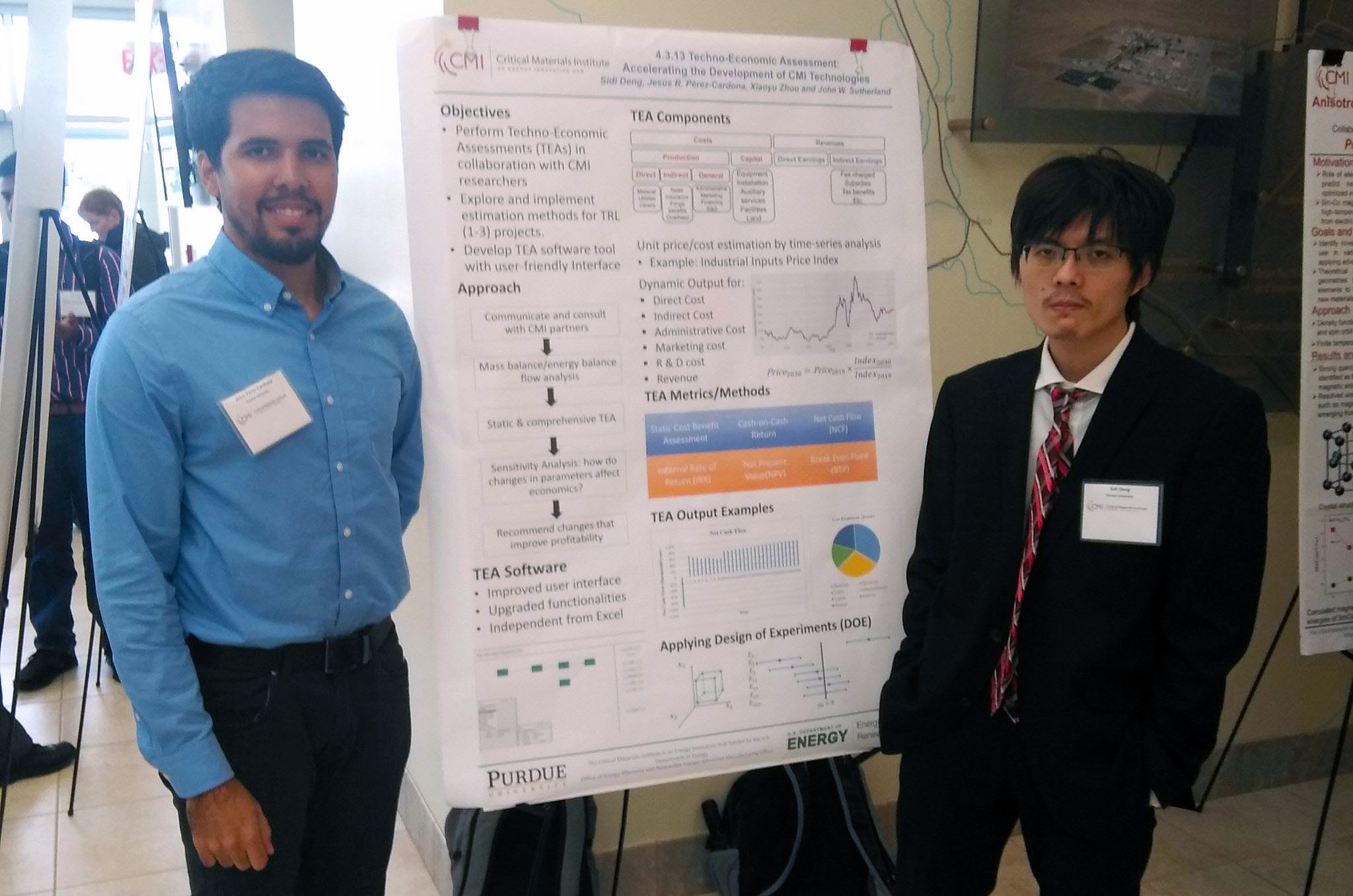Collaboration Between Labs, Universities, and Industry Leads to Better Solutions

The Fehsenfeld Family Head of Environmental and Ecological Engineering (EEE) John W. Sutherland and EEE Professor Fu Zhao, along with Professors Carol Handwerker and Ananth Iyer at Purdue University, have been collaborating since then in an effort to find new solutions.
"Rare earth elements (REE) are essential for U.S. manufacturing competitiveness, especially for clean-energy products such as wind turbines and electric vehicles," Sutherland said. "The Critical Materials Institute focuses on developing and commercializing technologies that will ensure the availability of rare earth and other important elements that are needed for these important green products. In particular, we are working to reduce the risk of supply disruptions."
The CMI energy hub has identified the following elements as critical materials: dysprosium, terbium, europium, neodymium, yttrium, cobalt, gallium, indium, lithium, manganese, platinum group metals, tellurium, vanadium, and battery-quality graphite.
The Purdue team has led an effort to develop closed-loop material cycles for REEs used in making magnets for lighter and more efficient generators for wind turbines. Such magnets are also used in electric vehicles and hard disk drives. Through closed-loop cycles, end-of-life magnets are reused, remanufactured, or recycled. “Closing the loops on these valuable materials reduces vulnerability to supply disruptions, U.S. dependence on foreign supplies, and lessens the environmental burden," noted Sutherland.
Ehsan Vahidi (Ph.D. EEE ‘18), now at the Materials System Laboratory at Massachusetts Institute of Technology as a postdoctoral associate, collaborated with Sutherland’s group as well as a team of researchers from Idaho National Lab to conduct a techno-economic assessment of recovery of rare earths from waste magnets via biological treatment. This collaboration resulted in a paper published in the ACS Sustainable Chemistry and Engineering Journal.

Fu Zhao and his students have worked to develop analytical tools for forward-looking assessments of critical materials. In particular, they are examining the materials need for lithium ion batteries. Sutherland and his students are helping other CMI teams to advance their technologies by providing insights into how to make them more economically competitive through techno-economic analyses. They are also helping other researchers to be efficient in their experimental investigations by providing statistical design of experiments expertise.
The CMI project includes representatives from national laboratories, universities, and industry. Current participants include: Ames Laboratory, Idaho National Laboratory, Lawrence Livermore National Laboratory, Oak Ridge National Laboratory, Colorado School of Mines, Florida Industrial and Phosphate Research Institute, Iowa State University, Purdue University, Rutgers, UC Davis, All American Lithium, American Manganese, Arnold Magnetic Technologies, BorgWarner, Solvay, Eck Industries, Inc., Electron Energy Corporation (EEC), GE, INFINIUM, Marshallton Research Laboratories, OLI Systems, Rio Tinto and United Technologies Research Center.
According to the CMI factsheet, “In six years, CMI has published more than 285 refereed publications in leading scientific journals, made 120 invention disclosures, created three open-source software packages, won four R&D 100 Awards, prepared 56 patent applications, and received 10 U.S. patents. Eight CMI technologies have been licensed. With focused teams and unique facilities, CMI has demonstrated that it can significantly accelerate the process of delivering technological solutions to the marketplace.”
Photo 1 // element Europium // Alchemist-hp (www.pse-mendelejew.de) [CC BY-SA 3.0 de (https://creativecommons.org/licenses/by-sa/3.0/de/deed.en)]
Photo 2 // Graduate students Jesus R. Perez-Cardona and Sidi Deng at CMI Annual Meeting September 2019
